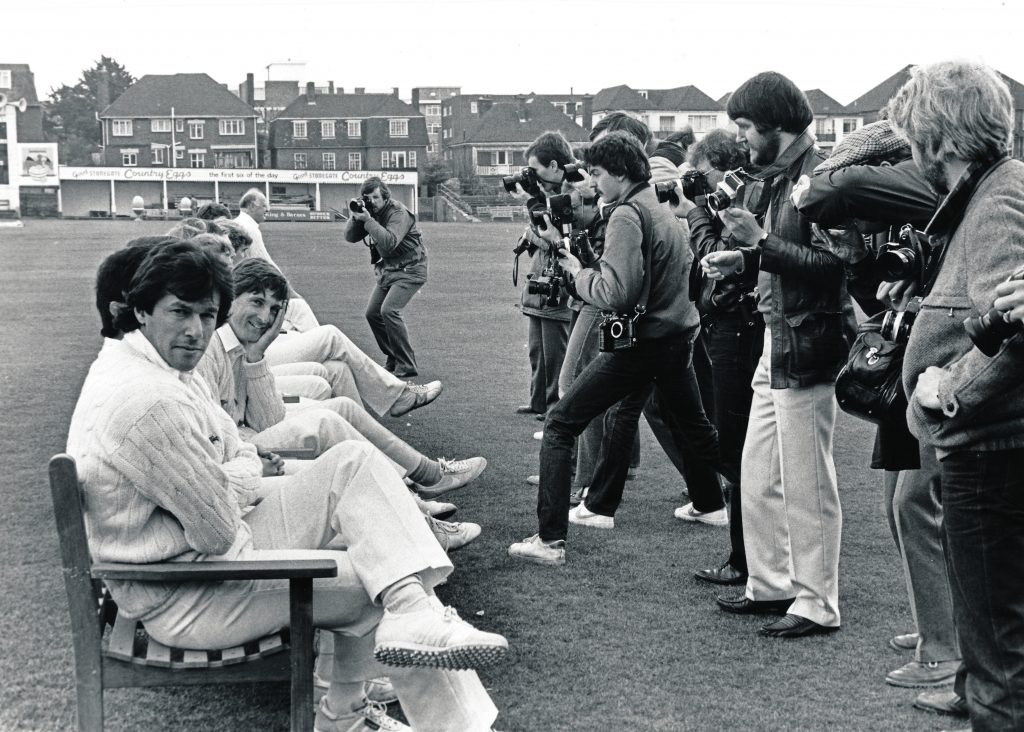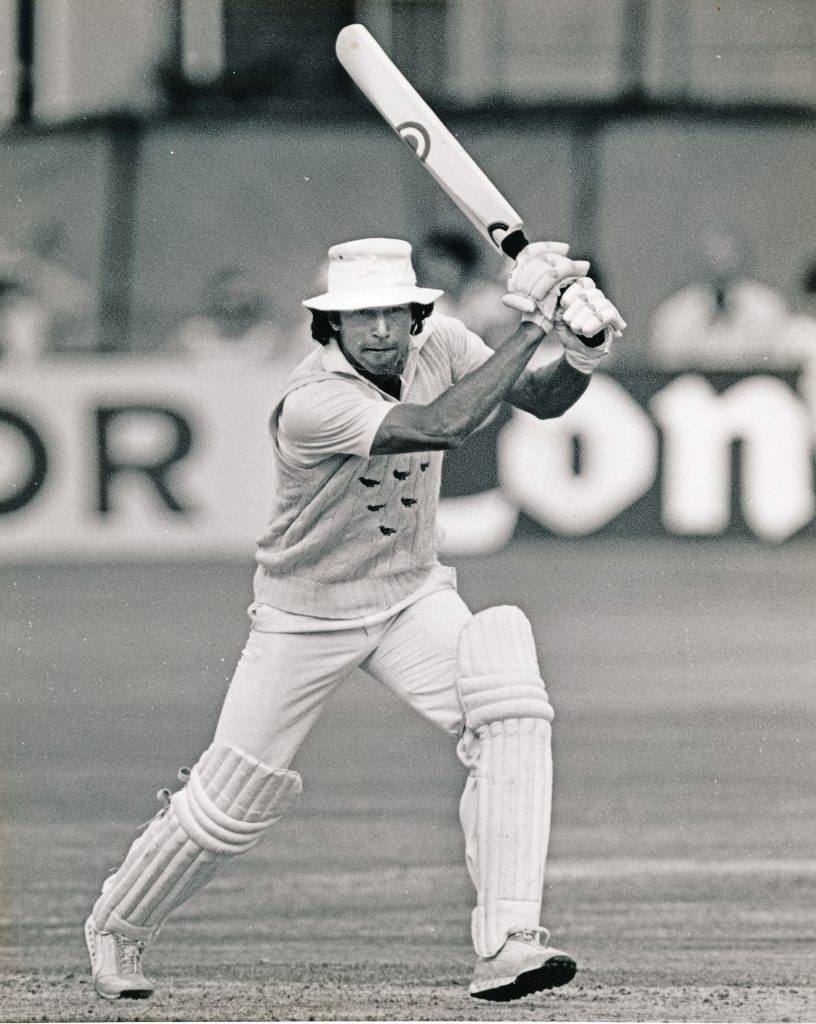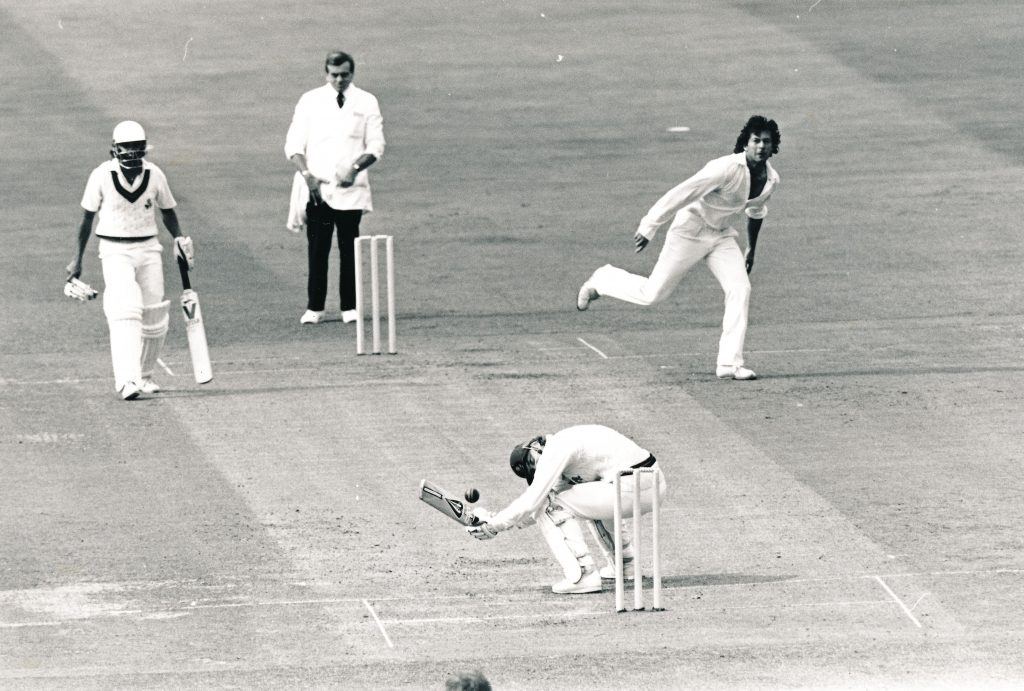A legendary all-rounder
Imran Khan Niazi was born in Lahore, Pakistan on 25 November 1952. He was to become one of the legendary right-arm all-rounders in recent cricket history, let alone for Sussex for whom he first played in 1977.
Khan was educated at Aitchison College, Lahore and Worcester Royal Grammar School before going up to Oxford University where he was captain in 1974 and won three Blues. The 18-year-old Khan toured England with Pakistan in 1971, playing in one of the three Test matches. He joined Worcestershire after the tour ended, and spent a year at school in Worcester. Khan was capped by Worcester in 1976 but despite the cap, he left New Road and joined Sussex in 1977.

Captain of Pakistan
Over the next few years Khan established himself in the Pakistan side becoming captain in 1982. He was never to captain Sussex because of his many commitments to international cricket but whenever he appeared for Sussex he made his presence count as when the year after he joined the club he appeared in the One-Day final in 1978 and made the most runs and took the most wickets of anyone in Sussex including a really impressive 167 against Gloucestershire with 104 runs coming in boundaries. When the South African Garth le Roux joined the club in 1978, Sussex had a truly lethal bowling partnership. In 1981 Sussex just failed to win their first ever Championship. The pairing of Le Roux and Khan together with support from Geoff Arnold and Ian Greig was a significant part of the club’s success at this time.

Top of the bowling and batting averages
In three of his seasons with Sussex Khan led both the Championship bowling and batting averages for the club although constant cricket, including playing for the Kerry Packer circus, meant that injury began to restrict his appearances. By 1983 Khan was really not fit enough to be a main strike bowler and he was used as fourth change for Sussex at the end of the season match with Warwickshire. However he did take six wickets for six runs in 4.3 overs and then made 94 and 64 in Sussex’s second innings although this was not enough to avoid defeat.
Perhaps Khan’s main contribution to Sussex was in One-Day cricket. He played in the 1978 final and in the 1986 Final contributed 50 no to the Sussex total. He was described that day by Wisden as achieving ‘casual elegance’ and helped his side to a comfortable victory.
By 1988 Khan was approaching his 36th birthday and he played just four matches in the Championship although contributed more to the limited overs game. He retired at the end of the season by which time he had scored 17,771 runs in all first-class matches (including 42 not outs) and taken 1287 wickets.
For Pakistan, Khan played 88 matches, 45 as captain . He scored 3,807 runs at 37.69 and took 362 wickets at 22.81. He also played 175 One-Day internationals.

How did he compare with the greats of his time?
Imran Khan’s career coincided with some of the great all-rounders in international cricket including Ian Botham, Kapil Dev of India, and Sir Richard Hadlee of New Zealand. Khan’s batting was probably better technically than the others and his bowling was quicker. Khan defended the use of the bouncer although he was well able to cope with the bouncer bowled against him. Khan may have retired from county cricket in 1988 but he continued playing for his country until 1991 and led Pakistan to victory against England in the final of the Benson & Hedges World Cup in 1992, scoring 72 the highest score on either side. He had become disenchanted with cricket and moved quietly away from the game, eventually entering politics. Following the death of his mother from cancer in 1985, Khan began a fund-raising campaign to build a specialist hospital in Lahore, and this was the platform for him to enter Pakistan politics. He founded the Pakistan Tehreek-e-Insaf (PTI) in 1996 and served as the Party’s national leader. He won a seat in the National Assembly in 2002. Although PTI boycotted the 2008 general election, in the subsequent election, the party became the second-largest party. Khan became Prime Minister of Pakistan in 2018.
Sussex Record 1977-1988
Batting: M:131, I:212, Runs: 7,329, Ave: 43.11
Bowling: W:409, Ave:19.97